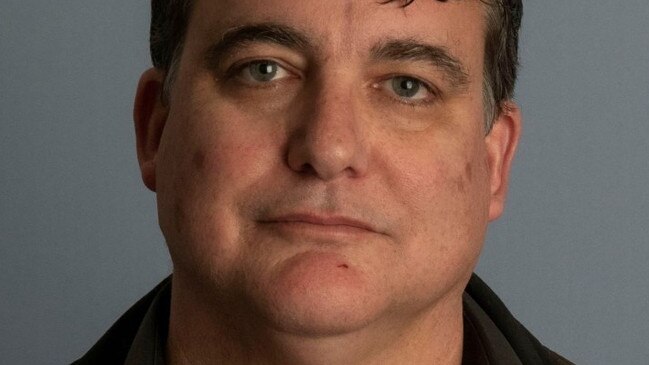Crimes and sentencing changing post-Covid for Geelong’s young offenders
After spending years in and out of Covid lockdowns, the crimes of Geelong’s young offenders could look very different, an expert has explained.

News
Don't miss out on the headlines from News. Followed categories will be added to My News.
Following years spent in and out of Covid lockdowns, Geelong’s youthful offenders could be returning to crimes in very different ways now the city has opened back up again, an expert has explained.
While it is no surprise the number of criminal convictions among young offenders will slowly return to pre-pandemic levels, an expert at Deakin University has predicted the offences themselves could change due to the way childhood development stalled in lockdowns.
Honorary fellow and criminologist Dr Richard Evans said the lockdowns would mostly have an effect on young people who are “having mental health issues or people for whom home is not a safe place,” which may ultimately affect their behaviours post-Covid.

“Two years with on-and-off isolation and not going through the socialisation they normally would, you can imagine that this group – as things unfold and as they get a bit older – may have more difficulty than they would otherwise,” Dr Evans told the Geelong Advertiser.
Although there may not be a major spike in crimes from youthful offenders as Geelong adjusts to the new normal, Dr Evans said there could be an “increase in some forms of anti-social offending and an increase in mental health distress” and the offences that come with it.
“One of the things you can be fairly definite about is that an awful lot of young offenders – the people you see through the Magistrates Court on a Monday morning – they will very often have mental health or adjustment issues,” Dr Evans explained.
For alleged offenders between the ages of 10 to 17, the number of recorded crimes across Victoria dropped from 18,887 in 2020 to 16,853 in 2022, representing a decrease of 10.67 per cent.
According to the Crime Statistics Agency data, youthful offenders between the ages of 18 and 24 were similar, with the number of recorded crimes dropping from 85,283 in 2020 to 74,125 in 2020, making it a 13 per cent difference on either side of the pandemic.

Male youthful offenders were more likely to offend than women, with young men between the ages of 10 to 24 committing 40,249 alleged crimes in 2020 compared to the 11,855 committed by young women.
Similarly, in 2022, male alleged offenders between the ages of 10 and 24 committed 34,768 offences, a 210 per cent increase on the 11,215 crimes committed by women of the same age.
On why crime among youthful offenders dipped during the Covid pandemic, Dr Evans said it is because “crime follows people”.
“Young people in particular aren’t able to get together and there is less opportunity to offend. There’s no one to get into a fight with, there’s no one to steal from,” Dr Evans said.
A trend in sentencing youthful offenders in 2022 has also adjusted, with local magistrates opting to have youthful offenders placed onto treatment programs rather than punished with prison terms.
When sentencing youthful and repeat offender Donovan Kenyon, 23, in August, Magistrate Peter Mellas considered his age, telling him he was young enough to “pull your head in and stay out of trouble”.
“You’re still young and there is still the possibility that you can make changes. That’s a common sense thing.

“Young people often make decisions that is a result of how they have grown up (and) because of things that have happened to them. As they get older, they may learn and make changes that are good for them and good for everybody else,” Mr Mellas said.
“I hope that is going to happen.”
Similarly, when handing down a sentence to Alith Wal, 20, and Nyal Mainyal, 21, in July for an affray that led to the death of Mohammad Mohammadi, Supreme Court’s Judge John Champion said their willingness to rehabilitate hinged on their age at the time.
Judge Champion said that while both demonstrated a lack of insight and a lack of commitment to the rehabilitation, they are “young men, of course, and these are features of young people”.
Defence lawyers also tend to focus on their clients age when making submissions about the youthful offenders circumstances post-Covid.

When defending 20-year-old Thomas McKellar, for example, defence lawyer Greer Boe said he was too young to handle the maturity it would take to cope with the pressures of a courtroom.
Similarly, defence lawyer Jacob Mildren said his client Delroy Francois, who was sentenced on drug and dangerous driving crimes, was a “vulnerable young person” who has “always been susceptible to peer influence (and) looking for acceptance in those circles”.
While crimes and sentencing outcomes dipped post-Covid, Dr Evans cautioned parents against keeping their children confined.
“Accept that teenagers are going to be teenagers and they may sometimes do stupid things. It would actually be counter-productive and generate rebellion by needlessly restricting them,” he said.
More Coverage
Originally published as Crimes and sentencing changing post-Covid for Geelong’s young offenders




